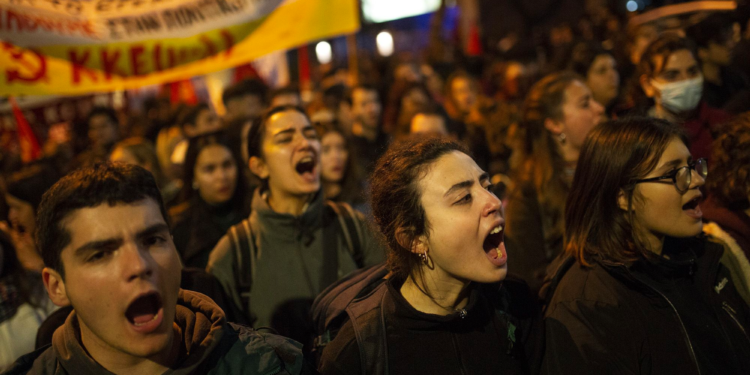Protests have broken out in Greece following a deadly train collision that left at least 57 people dead and 85 injured. The crash occurred on Tuesday night in the town of Larissa when a passenger train collided head-on with a freight train on a single track. The cause of the crash is still under investigation, but officials have suggested that it could have been caused by a signaling error.
As the number of confirmed dead in the crash continues to rise, anger has grown among Greek citizens, with many blaming the government for neglecting the country’s infrastructure. On Wednesday, rail workers went on strike in protest over working conditions, while protesters clashed with police in Athens and other cities.
The Greek Prime Minister has declared three days of mourning in the wake of the tragedy and has promised a full investigation into the crash. The government has also announced that it will provide financial assistance to the families of those killed or injured in the crash.
The collision has highlighted long-standing issues with Greece’s rail network, which has suffered from years of underinvestment and neglect. In recent years, there have been a number of accidents and incidents on the country’s railways, including derailments and collisions.
The government has pledged to invest in the rail network, but critics say that more needs to be done to improve safety and modernize the infrastructure. The crash has also raised questions about the training and competence of railway staff, with some blaming the collision on human error.
The incident is a tragedy for the people of Greece and serves as a reminder of the importance of investing in infrastructure and ensuring that safety standards are met. As the investigation into the crash continues, it is hoped that lessons will be learned and action taken to prevent similar incidents from occurring in the future.
Friday, July 26, 2024










